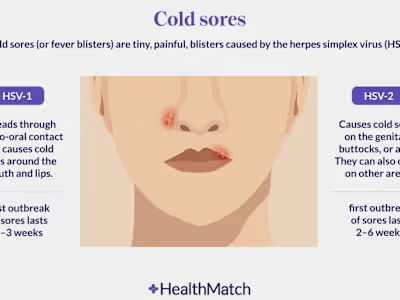My Editing Process: Cognitive Biases

-
I love writing and editing content about brain stuff. Whether that's psychology or neurology, science just really makes me tick. Diving into scientific articles really excites me—you never know what you're gonna discover! Yes, I should probably get a hobby.
Anyway, I was super pleased when I received an assignment from a tech client to edit an article about cognitive biases. I've researched and written about the topic extensively, so it's something I'm familiar with and really enjoy.
So, I'm ready to edit the article and maybe add to my knowledge!
Imagine my disappointment when I opened the document to see one of the worst pieces of writing I'd seen in quite a while. When companies outsource the bulk of their content to content agencies/mills that don't pay very well, the work usually reflects that.
Don't get me wrong, some mill writers are amazing, and their work is so undervalued. But others are churning stuff out with AI to make a quick buck. Formatting is unheard of. Many don't even use spellcheckers, let alone ensure they're writing to the client's tone of voice.
It often falls to me to create an article that's actually readable and fit for purpose. This process can be very frustrating. I take so much pride in my work, and it disappoints me when others don't. But I guess I'm getting paid to sort their writing out!
So, let's look at a few excerpts from the article in question and how I fixed it.
Original excerpts vs. my edits
GenOmE
"According to Frontiers in Psychology, the way human brains are, many biases can arise. Some gradually manifest and some are innate. One journal article states, 'On this account, cognitive biases are ultimately encoded in the genome, which ultimately traces back to various evolutionary pressures.'"
The good: A citation. Love it. Thank you for saving me a Google.
The bad: The quote. It's too academic for a simple explainer article on cognitive biases. The tone is incredibly off for a client who likes a laid-back approach and casual tone of voice.
I also don't like the leading sentence. Sentences split up with commas annoy me.
My correction:
"According to Frontiers in Psychology, some biases gradually appear while others are innate."
Short and simple. The article really doesn't call for more. Basically, if I have to Google a definition or really think about what a writer's trying to say, I don't want it around. I prefer simplicity and minimal jargon where possible. Readers shouldn't have to work to understand an article. Once I realised that, my writing got so much better.
(Plus, if I were editing it now, I'd probably change innate to something even simpler 🤣)
Holy run-on sentence, Batman
"One of the most common and widespread bias types is the confirmation bias. In today's world and polarization, surrounding oneself with only news and information that feeds into their beliefs and doesn't challenge them with new thoughts and emotions is the most common form, and thusly most powerful, of the cognitive bias types."
The good: Polarization. If you ever want one word to describe humanity accurately, it's that.
The bad: Where do I begin? First, thusly? Is this the 50s? Honestly, I'm still *surprised Pikachu face-ing* at that, and it's months on.
We also have a 40-word sentence. While it's far from the worst I've seen (I think the record is 70+), it's pretty unreadable. My brain checked out very early on.
Again, this client has a very casual tone of voice. Think appealing to Millennials, Gen Z, etc. We don't wanna see the word oneself ever. Let alone thusly.
Also, writers often use words together like common and widespread. These basically mean the same thing, and it's already too verbose. I fall into this trap sometimes, but I'm definitely more mindful of chucking in unnecessary synonyms.
My correction:
"One of the most widespread bias types is confirmation bias. In today's polarizing world, it’s easy to surround ourselves with news and information that feeds into our beliefs. If we don’t experience opposing thoughts, it’s very easy to think our view is the only view."
A more casual tone, no thusly or oneself. Once again, if I were editing now, I'd probably cut it even more. I'd also probably lead with "confirmation bias is" as it looks a bit disjointed. But it's still a large improvement. (I can actually read it without falling asleep.)
This writer clearly doesn't have ADHD
"Some of the easier ways to see if you have cognitive bias influences can be seen by only watching certain TV channels that are on your side of an issue, buying certain brand name items that are aligned with your views, blaming others when you do not get what you want, and believing that you earn things while others get by on luck and privilege. If you only watch, read, and speak about what agrees with you, it may be a sign that you’re a victim of cognitive bias."
Yep, I can confirm that's a sentence.
I always say JESUS whenever there's a list sentence like this (it's a common occurrence).
A sentence quickly becomes a paragraph if you add a few items to the list. A quick tip: Bullet points are your friend. Casual writing loves bullet points. I love bullet points. My neurodivergent brain needs bullet points.
The good: An Oxford comma. Thank you so much.
The bad: I needed to take a brain break after reading this 65-word 'sentence.'
My correction:
"How do you identify cognitive bias? Look out for these issues:
● Only watching specific TV channels that are on your side of an issue
● Buying products from companies that align with your views
● Blaming others when you don't get what you want
● Believing you earn things while others get by on luck and privilege"
Again, I'd probably tighten all of this up now I'm reading it a couple of months on! But my version is much more neurodiverse-friendly. I love being able to skim-read stuff.
Passive voice
"When blame is given toward outside events or circumstances but any success is your doing, that is the self-serving bias. It is projecting only positives on yourself while inflicting any blame elsewhere.
Examples of the self-serving bias is where believing you got a great grade on the test because you are smart but if you didn't get a good grade it was because there were too many choices on the test and was meant to trick you."
The good: The example is decent, but they used similar earlier in the article.
The bad: Once again, the tone is overly formal. And passive voice makes it even worse. Don't get me wrong; passive voice has its place: Academic writing, not a casual informative article about psychology. This client's style guide specifically requests no passive voice.
Again, we've got a run-on sentence. Some bits aren't very good English, like 'inflicting blame.' And there are several errors, but the article was littered with them, so it kinda feels pointless mentioning them.
My correction:
"Do you blame outside influences for your problems while taking credit for your successes? That's the self-serving bias.
Let’s imagine you’re taking your driving test. You pass the second time, thanks to your fantastic driving. But the first fail was totally the examiner’s fault—they tripped you up! It definitely wasn’t because you ran a red light. Definitely not."
Jokey, to the point, casual. On point for the client's tone of voice.
All in all
I love editing. It's always thrilled me and filled me with joy. But sometimes it's pretty soul-sucking. So I rant about it on my portfolio because why not?
If you need an editor who can whip your content into shape, you know who to contact 😉
Like this project
Posted Oct 16, 2023
Science is one of my favourite things ever. Especially psych. Let's look at a recent example of a writer ruining an interesting topic and me saving the day ;)
Likes
0
Views
7








